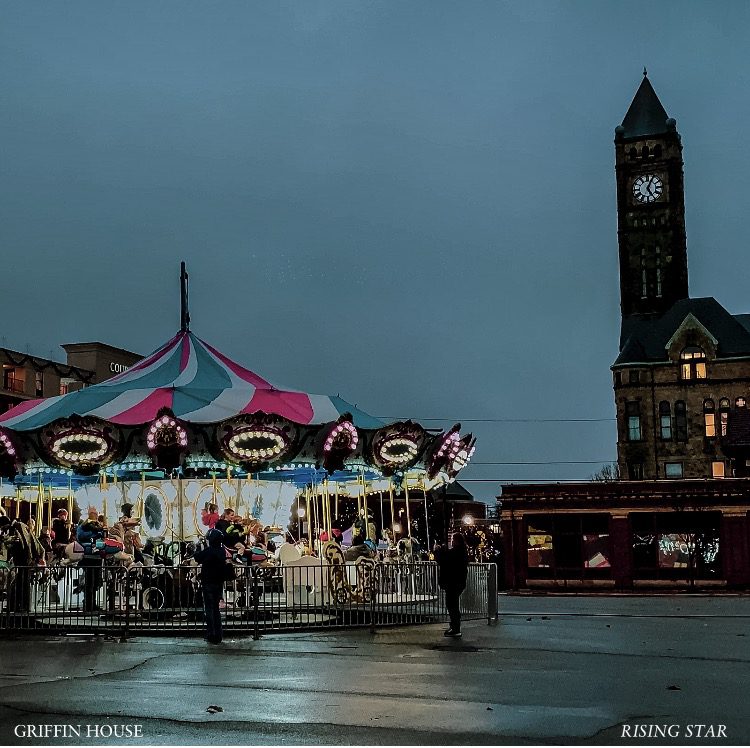Griffin House Explores Music and Life Business on ‘Rising Star’

On his latest release from Evening Records, Griffin House seems to have realized his potential to produce new combinations, new adaptations, and truly new developments. Indeed, Rising Star is at the heart of an artist who is fully comfortable applying his talents.
House’s self-proclaimed “slow rise” is chronicled thoughtfully and much to our reward. Album opener “Rising Star” serves as a sort of thesis for the record (“you are bound to go far”), an understated and poignant anthem from the 39-year-old Ohio native that manages to be both a statement of personal defiance and collective liberation. “15 Minutes of Fame” revels in the cost of going out on a limb, “watching it all go by,” doing things your own way.
Ultimately, all the singer-songwriter can do is share his songs and words with people to keep his legacy alive, and through his own perseverance, House has unearthed a deep crater of mixed feelings.
Musically, there are shadows of Bruce Springsteen, hues of ’70s rock and roll, and traces of something sounding palatably mainstream. “Mighty Good Friend” is a country-coated track that features his children singing along as he recorded it in his Nashville garage studio. “When the Kids are Gone” reveals House’s deep hope for a peaceful settlement of family and his conviction that ultimate personal prosperity depends upon a reconciliation of sorrowful and joyful memories. It’s a beautiful ballad reminding us that in order for love to last through the ages, it must first be ours for a day. “Hindsight” is the triumphant acknowledgement that success often bears the hallmarks of pain, struggle, and at times, regret. “Hung Up on You” is a heart laid bare and honest.
On the majority of the tracks, including perhaps most notably “Cup of Fulfillment” and “Tell Me What You’re Made Of,” we hear the sound of an artist learning to trust his instincts again, who understands his own value.
Boisterous and incongruous, “Natural Man” stunts the album’s continuity, but fortunately it comes and disappears quickly. “Crash and Burn,” an ode to the decadence of rock and roll freedom, lacks the connective power of most of the album’s other songs, but its closer, “Change,” should be hailed for its emotional vulnerability and earnest hopefulness.
“Change,” with vocals from Joy Williams, acknowledges some of the feelings that have led House to the latest phase of his expansion as a musician. It’s heartfelt and simple and conveys the songwriter’s willingness to open a proverbial vein and bleed.
Quiet and content this album isn’t. Thematically, it’s the work of a talent who has never been one to sit on his laurels and wait for the next trend to come along. Despite the fact that ambition isn’t endemic to House or to music or music endeavors, he still makes it all feel so special and singular, sharing the pressure to create a viable product while not compromising his own artistic vision.
There is plenty of weary self-doubt and second-guessing about whether climbing the ladder comes at too high a cost. Regardless of whether House believes that he has “arrived” or feels that he must continue scaling, Rising Star is a good piece of finished work.



